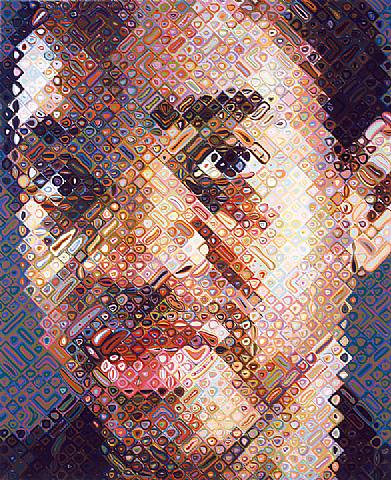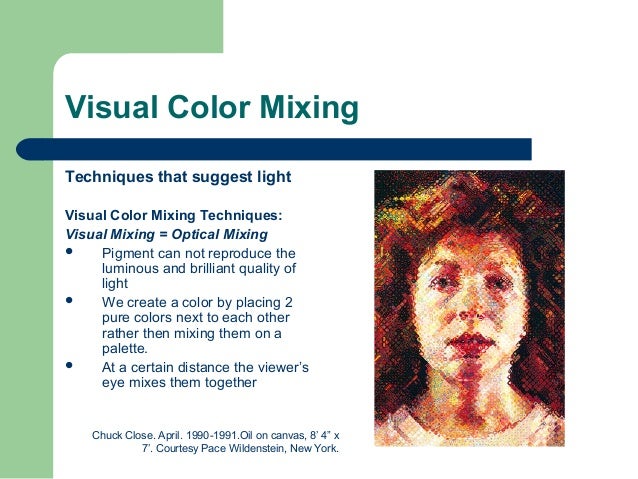By using dabs of different colors right next to each other, the eye "mixes" them together in the brain to read as a new color. For example, if you had an area with different reds and yellows and a few blues, the area would "read" as a toned down orange because red+yellow=orange and blue is the opposite (complimentary color) of orange which will neutralize it.
See the examples below of art using this process.

Georges Seurat (French Post Impressionist painter who was most famous for this technique)


Chuck Close (American painter who took this idea further)




Self Portrait of Chuck Close - He is still living and working.




I like the 3rd one because it looks so simple but when you look up close you see the small detail. It is cool how the eye does this.
ReplyDeleteI like the last one because each square has its own design inside
ReplyDelete- Justin LaPradd
I like the fifth one the best. The dots are in a circular shape, yet you can still see the person clearly.
ReplyDeletei like the last one because it has little colorful things in the squares and they are pretty
ReplyDeletethe first one is really cool and i really get the full effect of the picture from the dots in the painting.
ReplyDeletei like the ones with the squares with different shapes in them. i gives it more detial than just doing the dots
ReplyDeleteI really like the third one. It looks so simple, however, when you take a closer look you can see all the dots that was put into this painting. I really like all of these paintings.
ReplyDeleteI like the square ones. It takes time but it's really worth it!
ReplyDeleteI like the 5th one, it's really attractive and cool.
ReplyDeleteJoy Zhao
And there are dozens of these in the 2nd St Station--New York City subway--East 86th
ReplyDeleteDiane Mead
Mount de Sales
Of course, the Chuck Close paintings have been translated into mosaics by mural craftsmen. Vik Muniz also has work in the murals.
ReplyDelete